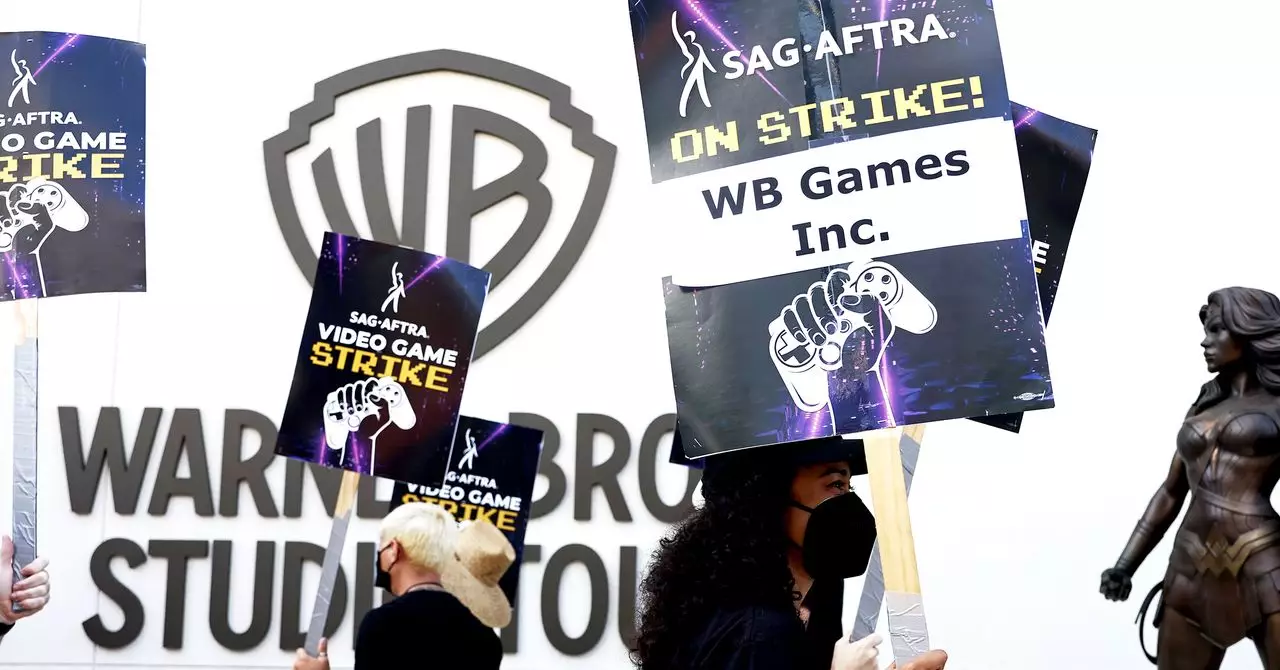The recent endorsement of a comprehensive new contract by SAG-AFTRA signifies a pivotal turning point for video game performers, whose contributions have long been undervalued in a rapidly evolving industry. With an overwhelming 95 percent approval rate, this agreement not only consolidates hard-won gains in compensation and work conditions but also establishes critical safeguards against the unchecked encroachment of artificial intelligence (AI). This triumph underscores a broader cultural and economic recognition: performers are essential creative collaborators whose rights must be protected as technology advances.
Historically, voice actors, motion capture artists, and likeness models faced systemic vulnerabilities—particularly as AI begins to threaten the very fabric of their livelihood. The contract’s emphasis on transparency and consent signals a shift towards respecting performers as autonomous creators, rather than mere digital assets. It heralds a new era where the intersection of artistry and ethics takes center stage, elevating the industry’s standards in an era where virtual replications threaten to erode traditional notions of authenticity.
Confronting AI: A Battle for Humanity in Gaming
The proliferation of AI capabilities, exemplified by tools like ChatGPT and sophisticated digital likenesses, has profoundly impacted not just entertainment but multiple creative sectors. In gaming, these technologies threaten to replace human talent with automated replicas—raising urgent questions about the nature of performance and the sanctity of artistic identity. The recent strike highlights performers’ awareness that their work is not just a commodity but an extension of their self-expression.
The inclusion of explicit provisions for consent and disclosure around AI usage marks a significant victory in combatting exploitative practices. Performers can now assert control over whether and how their voices and images are used, including the right to halt AI-generated content entirely. This proactive stance recognizes performers as custodians of their work, ensuring their performances are not siphoned off into digital copies without due acknowledgment—a crucial step in safeguarding creative integrity.
Moreover, the debate over AI’s role in replacing human actors is not purely economic but deeply philosophical. As generative AI creates digital doubles—shattered in a recent example involving Darth Vader—the industry must grapple with fundamental questions about authenticity and respect. SAG-AFTRA’s willingness to bring legal action demonstrates that protecting performers’ rights is not just about compensation but defending the essence of human artistry in a digital landscape.
The Ethical Implications and Future Trajectory
This contractual milestone raises pressing ethical issues that reverberate beyond gaming. The digital resurrection of deceased performers like James Earl Jones illustrates the need for clear boundaries and respectful treatment of a performer’s legacy. The contract’s emphasis on detailed usage descriptions signals an alignment of industry practices with moral responsibilities, ensuring that performers—living or pre-deceased—are treated with dignity.
However, challenges remain. The rapid growth of AI capabilities presents an ongoing arms race between technological innovation and performer protections. It is unlikely that industry stakeholders will accept limits voluntarily; thus, robust legal frameworks and collective bargaining, as exemplified by SAG-AFTRA’s actions, are essential. These measures not only reinforce performers’ rights but also serve as a template for other creative industries grappling with similar issues.
In essence, this development exemplifies a broader movement to humanize technology-driven entertainment. While AI offers intriguing artistic possibilities—such as realistic digital doubles and enhanced storytelling—the risks of devaluing genuine human performances are considerable. The industry’s future depends on balancing innovation with respect for creators, ensuring that technology serves as a tool for enhancement rather than replacement.
The recent contractual breakthroughs mark a decisive step in redefining industry norms, emphasizing that technological progress must never come at the expense of human creativity. By enforcing transparency, consent, and respect for performers’ rights, the gaming industry is setting a precedent that prioritizes ethical standards over unchecked technological dominance. This positive momentum, driven by player advocacy and union solidarity, paves the way for a more equitable and respectful future—one where artificial intelligence complements artistic expression without undermining the fundamental value of human talent.

